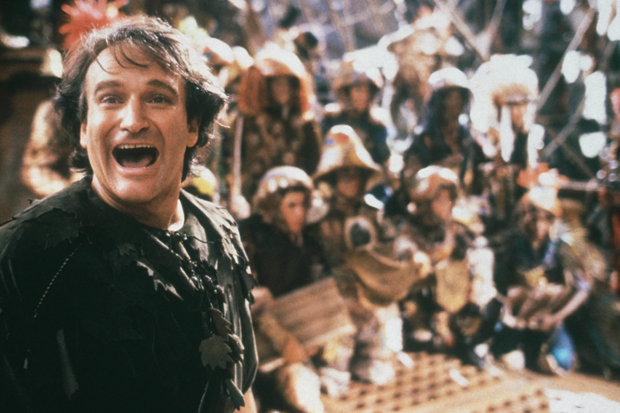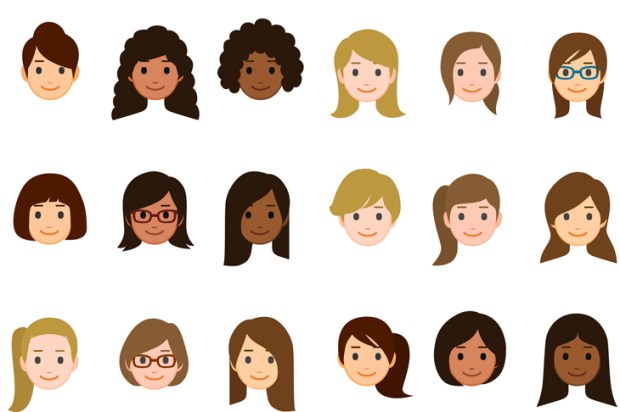Are you a man? Those of you who don’t fall into the category of ‘adult male’ will clearly answer no — but even those who do might not say yes. Do you apply the label ‘man’ to yourself? Are you happy using the phrase ‘I’m as [insert quality] as the next man’? You’re not? Me neither.
At 43 I’ve spent a quarter of a century as a man in the eyes of the law, but still the word feels too grown-up for me to use it about myself. Several friends have admitted the same thing. Winston Churchill was a man. Floyd Mayweather is a man. We, on the other hand, are… well, what? Talking to a woman in her mid-twenties recently, I referred to one of her contemporaries as ‘a great girl’. Quickly I corrected myself: ‘Sorry — I mean “woman”.’ ‘Don’t worry,’ came the reply, ‘I call myself a “girl” still. “Woman” just sounds wrong.’ The female in question is a thoroughly clued-up high-achiever, so it was reassuring to learn that feminism hasn’t yet outlawed the word ‘girl’. But the problem remains that we males don’t have an equivalent. ‘Boy’ doesn’t work. ‘Lad’ has unfortunate overtones. ‘Guy’ has never recovered from Tony Blair’s assertion that he was a pretty straight one. Where can we go?
You’re reminded of the problem whenever you do hear a man using the word about himself. ‘I’ve always been a very hard-working man,’ comes the braying prelude to a detailed account of a career and its every last triumph. Above the heads of everyone else, meanwhile, appears a communal thought bubble: ‘Tosser.’ Not for nothing has taking a job with a boring, self-satisfied establishment come to be known as ‘working for the man’.
The difficulty even extends to how you address other males. Call a group of your colleagues ‘men’ and you’ll sound like Captain Mainwaring in Dad’s Army — pompous, overbearing, someone to be laughed at rather than respected. A friend of mine who plays five-a-side football is aware of this, so encourages his team-mates with shouts of: ‘Come on, lads.’ Somehow the ‘l’-word loses its loaded (or Loaded) connotations when used in the plural. Only on the pitch, mind you. It wouldn’t work in an email, so Paddy begins team circulars with ‘Gents’.
Another term that works if you put an ‘s’ on the end is ‘guy’. What’s more it seems to have become unisex. ‘Hey guys’ is a greeting you’ll hear in mixed company, employed to and by both genders. The one word that really has hit the dustbin for good is ‘lady’, certainly in a sporting context: it is now most emphatically the England women’s football team. In fact sometimes the gender isn’t specified at all. A radio report will refer to ‘England’s progress in the Ashes’, and you’ll be two or three sentences in before you realise they’re talking about the women’s series rather than the men’s. Confusing, yes, but I’d much rather that than the dinosaur attitudes of the golf club, where women are still ‘ladies’. There’s plenty of patronising talk about the ‘fairer sex’, and doors are held open, but when it comes to actually being allowed on the course, women are restricted to certain times of day. It’s contempt dressed as respect.
And it’s respect that gives my friends and me our problem with the word ‘man’. To use it, we feel, would imply that we have too much respect for ourselves, that we take ourselves too seriously. When you’re six you think everyone who’s left school is a grown-up. Then you get to your twenties and still feel immature, not quite experienced enough to count as a proper adult. By 43, you know that feeling is never going to come — you’re never going to think of yourself as a man. The title belongs to other males: they know more than you, have achieved more than you, will always know and achieve more than you. By the time he was my age, Michael Portillo had been a cabinet minister for five years — yet now he’ll confess to you that he never believed he was a cabinet minister. He says it was as though there was some other cabinet somewhere which he wasn’t allowed into, the real one that took the important decisions. This from someone who at one point was seen as powerful enough to unseat the serving prime minister.
But then of course, by 43 you haven’t just had these thoughts yourself, you’ve listened to other men of your own age saying the same thing. And so it dawns on you that perhaps it’s not just you and a few friends — perhaps no one ever thinks of themselves as a man.
Got something to add? Join the discussion and comment below.
Get 10 issues for just $10
Subscribe to The Spectator Australia today for the next 10 magazine issues, plus full online access, for just $10.
You might disagree with half of it, but you’ll enjoy reading all of it. Try your first month for free, then just $2 a week for the remainder of your first year.














Comments
Don't miss out
Join the conversation with other Spectator Australia readers. Subscribe to leave a comment.
SUBSCRIBEAlready a subscriber? Log in